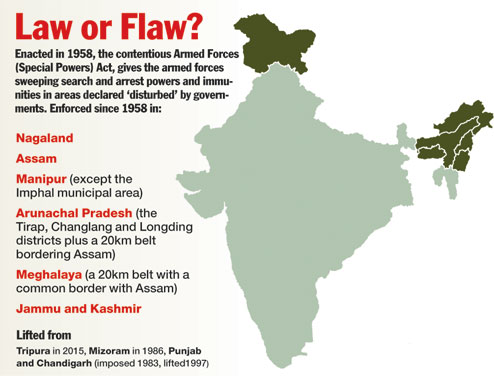7667766266
enquiry@shankarias.in
Why in news?
Ministry of Home Affairs (MoHA) has decided to reduce the central forces deployed under AFSPA Act in north-eastern states.
What is the AFSPA act?
What is the account of AFSPA in North-Eastern states?

What are the recent decisions?
What are the further plans?
Source: The Hindu